SUMMARY
This is AI generated summarization, which may have errors. For context, always refer to the full article.
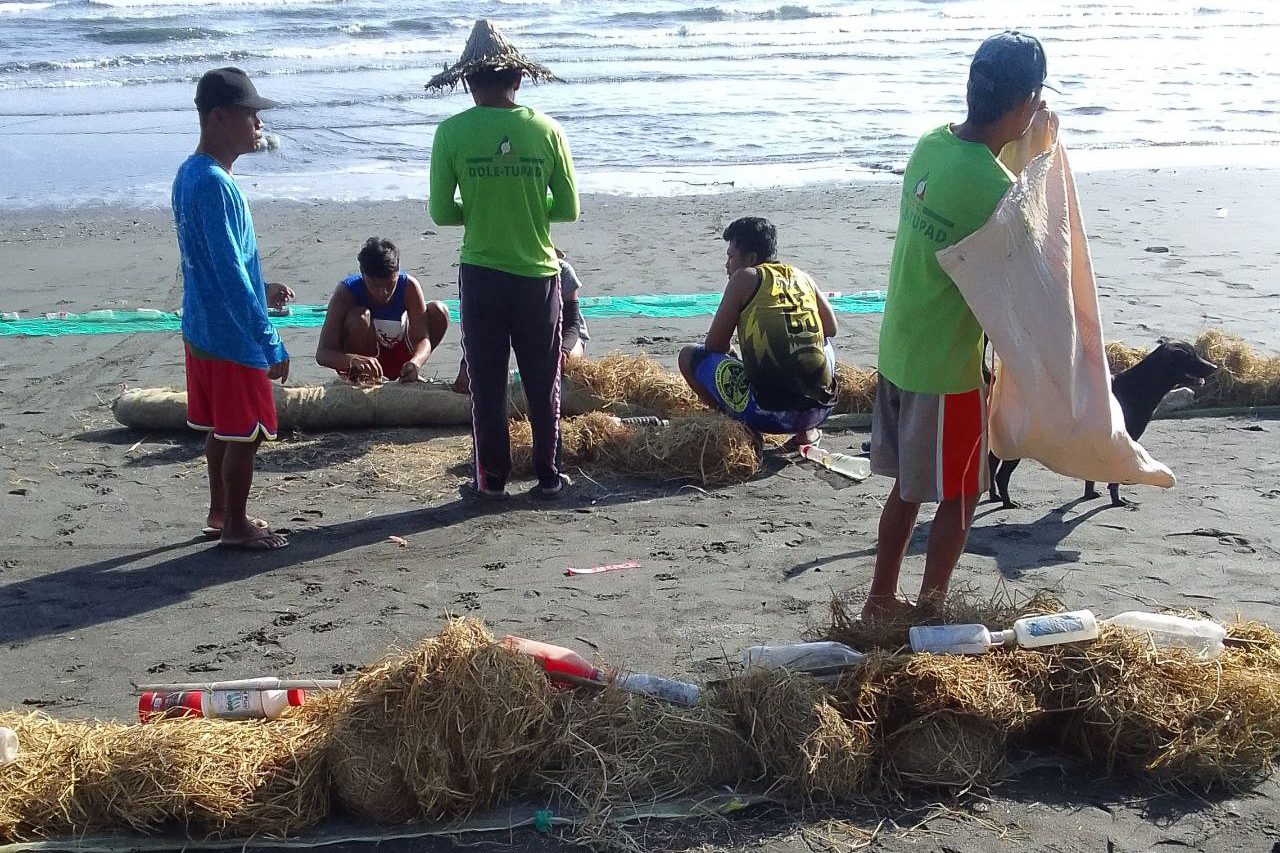
MANILA, Philippines – Starting Monday, March 27, a “Claims Caravan” will begin the insurance claims process for those affected by the oil spill in Oriental Mindoro, the Philippine province worst hit by the sinking of MT Princess Empress.
In a press conference on Thursday, March 23, Oriental Mindoro Governor Humerlito “Bonz” Dolor and an insurance representative announced that victims of the oil spill can start the process of filing for compensation arising from economic losses from the sinking on February 28 of the oil tanker off Naujan town.
Those who can file for compensation include subsistence fisherfolk, tourism establishments, non-government organizations, and even local government units.
“On the week of March 27, 2023, the first claims office, also known as ‘Claims Caravan,’ will open in Calapan City, Oriental Mindoro and will act as the collecting point for the claimants to submit their completed claims forms,” said Valeriano del Rosario, a lawyer representing the insurers.
Dolor said the provincial government has designated its legal office as the “help desk” for the claimants.
He appealed to the prospective claimants not to flood the provincial office on Monday, adding that there is enough time to process their claims.
As of March 23, Dolor said the provincial government has recorded 20,932 marginalized fisherfolk, 61 tourism establishments, 750 community-based organizations affected by the oil spill in Oriental Mindoro.
Del Rosario said local claims offices later will be opened in other barangays (villages) affected by the oil spill. The spill has already reached Verde Island in Batangas as well as some coastal areas in Palawan and Antique.
He said Filipino “claims processors” who underwent training will be stationed in these offices to handle these claims.
Categories
Del Rosario listed the four categories covered by the insurance:
- economic losses of those in fisheries and mariculture
- economic losses of those in the tourism sector and tourism-related business
- property damage
- cost of cleanup and preventive measures
Dolor and Del Rosario advised those affected to support their claims with pictures and documents, such as photos of damaged fishing gears and boats. They should also be ready to present receipts for items they purchased to replace the damaged goods or goods they bought for cleaning up.
Dolor also told prospective claimants not to fake documents and not to file multiple claims since these would affect their applications. “Sayang naman. (It would be wasted). Be honest,” he said.
When asked how the compensation will be computed, Del Rosario cited the example of a subsistence fisherman.
“Nagtanong ako dito, ‘di ako (I asked them here, I’m not a) fisherman, how many do they catch in one day. If they caught three kilos and sold it for P450, how many days (has it been), as of today, multiplied by 23 days (since they stopped fishing), so around P10,000. That is how to compute,” he said.
Del Rosario said the claims processors who will be stationed will distribute and collect forms, but they will not be the ones who will assess the claims.
He said it will be “experts” who will review these claims based on the information given in “completed claims forms.” After their assessment, claimants will be informed of the outcome.
“Claims will only be assessed if sufficient information is provided by claimants to prove their loss, and if claimants are unable to provide such evidence, they are advised to visit local claims offices for advice on the most appropriate method of presenting their claims,” he said.
Should claimants not hear from them within 30 days of submission of complete documents, they should contact the local claims office.
“Claimants can also be assured that their claims will be given the best attention to ensure that the assessment is being done as fairly and as accurately as possible,” Del Rosario said.
Since it has not been determined how long the fishing ban will last, Dolor said the claims can be periodical, although this has not been determined.
International conventions
Dolor said the process of seeking compensation will begin even though no civil case has yet been filed against the ship owner, RDC Reield Marine Services. He earlier threatened that the province would file a class suit on behalf of all victims in his province against the company, and feared that it would take time to get compensation.
In a hearing last March 14, senators Cynthia Villar and Raffy Tulfo doubted whether RDC would be able to claim insurance that the company reported to be worth $1 billion, in light of allegations that MT Princess Empress had no updated license to operate and was allowed to sail by the Coast Guard despite an incomplete pre-departure checklist.
Del Rosario, a managing partner of Vera Law, explained that there is actually a “mechanism for compensation for certain losses arising from oil pollution under two international pollution conventions which apply in the Philippines.”
These are the International Convention on Civil Liability Convention for Oil Pollution Damage (1969) or CLC, and the International Convention on the Establishment of an International Fund for Oil Pollution Damage Fund (1971) or FUND.
Ship owner RDC said these conventions provide the “legal framework on the funding for reasonable clean-up costs and other claims for pollution damage” related to the oil spill.
Vera Law is a Philippine firm that specializes in maritime and admiralty law. It acts for Protection and Indemnity (P&I) Clubs, marine insurers, port operators, ship owners, and charterers. A P&I Club is a non-governmental, non-profit association of marine insurance providers for its members such as ship owners and charterers under member-companies.
The CLC states that it was “adopted to ensure that adequate compensation is available to persons who suffer oil pollution damage resulting from maritime casualties involving oil-carrying ships.”
The Philippines signed both the CLC convention and the FUND convention on July 7, 1997, and it entered into force a year later, according to a Maritime Industry Authority (MARINA) document.
Del Rosario said the CLC is the “first level of compensation by owners [of the vessel], and that insurance comes under the P&I insurance cover of the owners of MT Princess Empress.”
The FUND, he said, “covers the amount in excess of what is covered by the CLC.”
Other fund sources
This means that if the CLC is not enough, a fund administered by International Oil Pollution Compensation Fund (IOPF) can provide the additional money for compensation.
According to RDC, the MT Princess Empress is “entered” with the Shipowners’ Mutual Protection and Indemnity Association or “The Shipowners’ Club,” a mutual insurance association based in Luxembourg.
“The owners of the vessel in conjunction with their P&I insurer The Shipowners Mutual Protection & Indemnity Association (which is part of the International Group of P&I Clubs) and the 1992 Fund, will examine the claims for compensation arising out of this incident in order to compensate claimants for the pollution damage suffered,” the RDC said.
Del Rosario, according to his profile, has been involved for 25 years in the Doña Paz litigation, considered the “largest peacetime maritime disaster in the world.” The passenger ferry Doña Paz collided with an oil tanker off Mindoro island in December 1987 leaving over 4,300 people dead.
Rappler reported on March 13 that SL Bulk Harbor Terminal Corporation, a subsidiary of San Miguel Shipping and Lighterage Corporation, chartered RDC to ship over 800,000 liters of industrial fuel oil from Limay, Bataan to Iloilo.
San Miguel Corporation, the Philippines’ largest diversified conglomerate, has neither confirmed nor denied this story. However, the country’s shipping regulator, MARINA, has confirmed that the loading port of MT Princess Empress on February 28 was SL Harbor Terminal, a private port operated by the San Miguel subsidiary.
Aside from its food and beverage business, SMC also has Petron Corporation for its fuel and oil business, and San Miguel Global Power Holdings, one of the largest power companies in the country.
MT Princess Empress’ damage ‘extensive’
Meantime, industrial fuel oil or “black oil” is still leaking from the sunken MT Princess Empress’ eight compartment tanks, but there is no sign of fuel leak from the damaged tanker, an update from the Philippine Coast Guard (PCG) said.
The Coast Guard shared on March 22, Wednesday, the findings of a Japanese Dynamic Positioning Vessel (DPV) team that sent a Remotely Operated Vehicle (ROV), Hakuyo, to assess the oil tanker which is submerged nearly 400 meters off Balingawan Point in the town of Naujan.
“The tanker suffered extensive structural damage after sinking. At this point, no visible consumption fuel leak coming from the damaged vessel,” the report says. Consumption fuel refers to the fuel used by the ship’s engine, not the industrial fuel oil cargo that is leaking.
The Japanese DPV team also reported that “oil leaks had been observed from all eight compartments (tanks), and some through the ballast tank” of MT Princess Empress. It said that the “No. 4 Port Pressure Valve” had the highest flow rate.
However, the team said it could not determine the volume of oil still left on the ship nor the rate of oil spillage.
Coast Guard Commandant Artemio Abu said on Wednesday another ROV would have to be shipped to Oriental Mindoro to plug or siphon the oil. – Rappler.com
Add a comment
How does this make you feel?
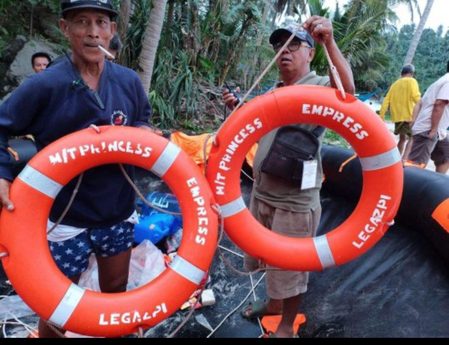
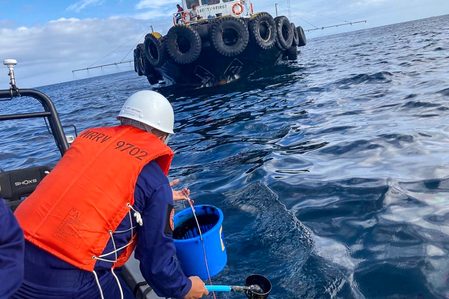















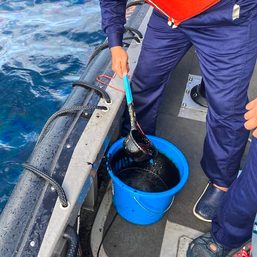





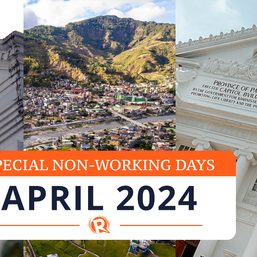
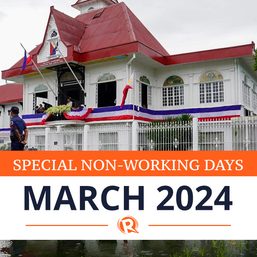
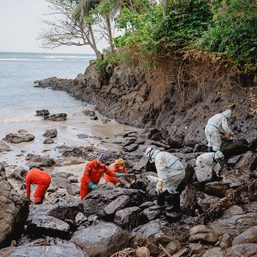
There are no comments yet. Add your comment to start the conversation.